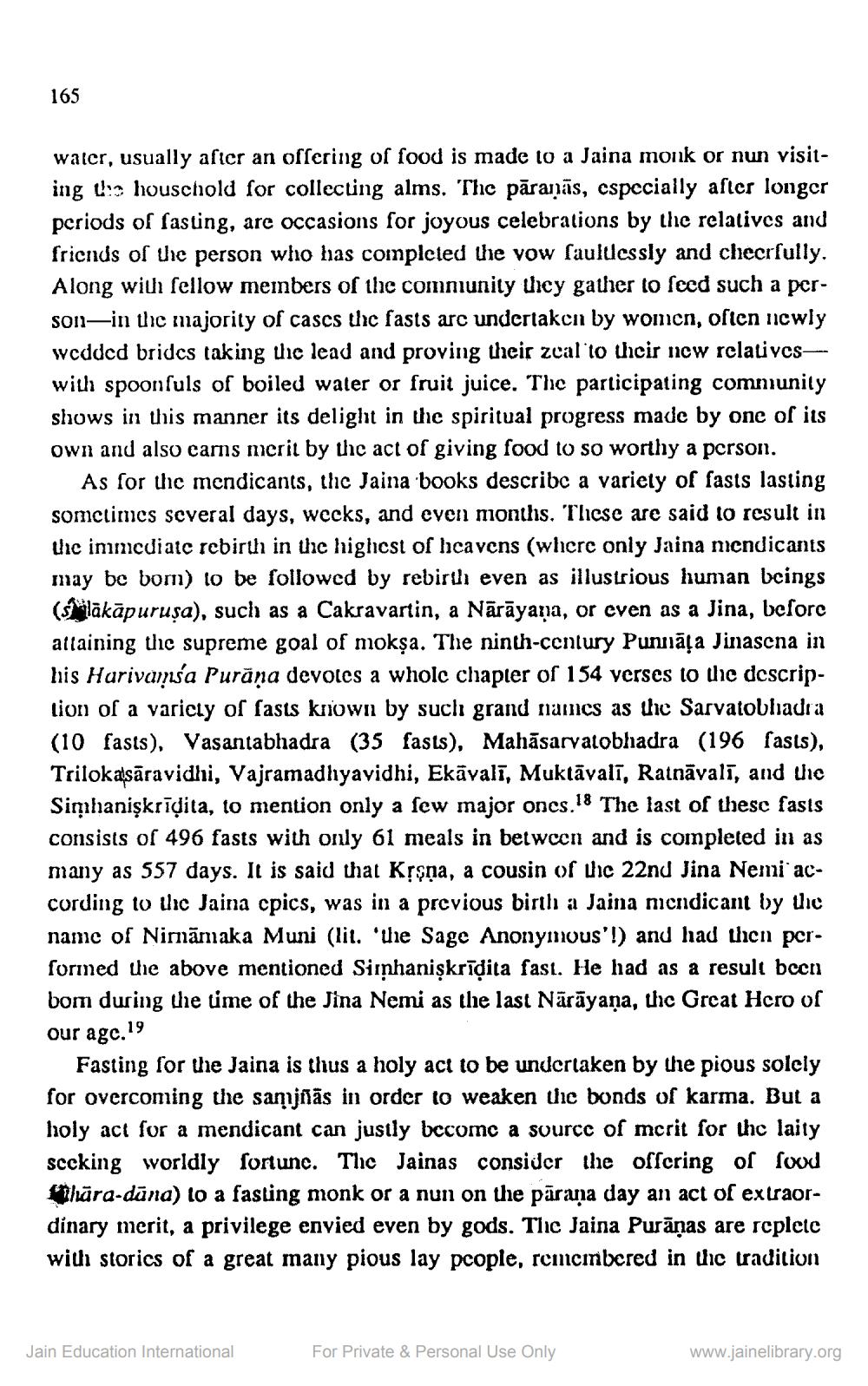________________
165
water, usually after an offering of food is made to a Jaina monk or nun visiting this houschold for collecting alms. The pārapās, especially after longer periods of Casting, are occasions for joyous celebrations by the relatives and friends of die person who has completed the vow laululessly and checrfully, Along with fellow members of the community licy gather to seed such a person—in the majority of cases the fasts arc undertaken by women, often nicwly wcddcd bridcs taking the lead and proving their zoal to their new relativeswith spoonfuls of boiled water or fruit juice. The participating community shows in this manner its delight in the spiritual progress made by one of its own and also carns mcrit by the act of giving food to so worthy a person.
As for the mendicants, thc Jaina books describc a variety of fasts lasting sometimes several days, wecks, and even months. These are said to result in Uhic inimcdiatc rebirth in die highest of hcavcns (whicrc only Jaina nicndicants may be bom) to be followed by rebirth even as illustrious human beings (siglākāpuruṣa), such as a Cakravartin, a Nārāyana, or even as a Jina, before attaining the supreme goal of mokşa. The ninth-century Punnāļa Jinasena in his Harivansa Purana devotes a whole chapter of 154 verses lo dic description of a varicly of fasts kriown by such grand names as thic Sarvatobliadra (10 fasts), Vasantabhadra (35 fasts), Mahāsarvalobhadra (196 fasts), Trilokasāravidhi, Vajramadhiyavidhi, Ekāvalī, Muktāvalī, Ratnāvalī, and the Simhanişkrīdita, to mention only a few major oncs.18 The last of these fasts consists of 496 fasts with only 61 meals in between and is completed in as many as 557 days. It is said that Krşna, a cousin of Vic 22nd Jina Nemi according to uic Jaina cpics, was in a previous birth a Jaina nicndicant by the name of Nimnāmaka Muni (lit. 'Uie Sage Anonymous'!) and had then performed the above mentioned Sirphanişkrīdita fast. He had as a result been bom during the ume of the Jina Nemi as the last Nārāyaṇa, thic Great Hero of our age. 19
Fasting for the Jaina is thus a holy act to be undertaken by the pious solely for overcoming the sanjñās in order to weaken tic bonds of karma. But a holy act for a mendicant can justly become a source of merit for thc laity sccking worldly fortune. The Jainas consider the offering of food
Phāra-dāna) lo a fasting monk or a nun on the pārana day an act of extraordinary merit, a privilege envied even by gods. Tlie Jaina Purāņas are repleto withi storics of a great many pious lay people, remembered in thic tradition
Jain Education International
For Private & Personal Use Only
www.jainelibrary.org




